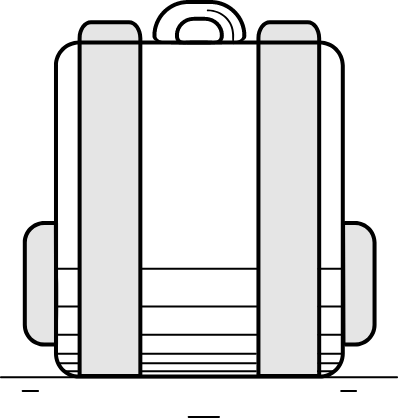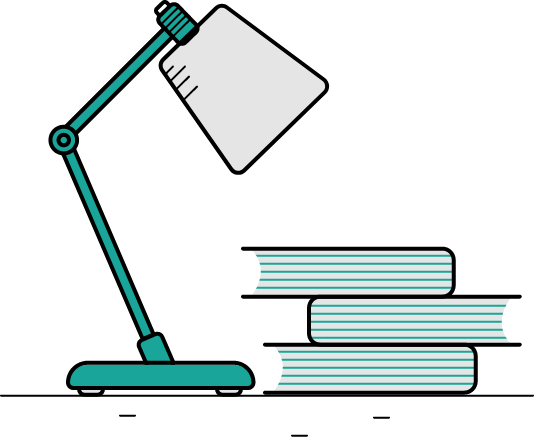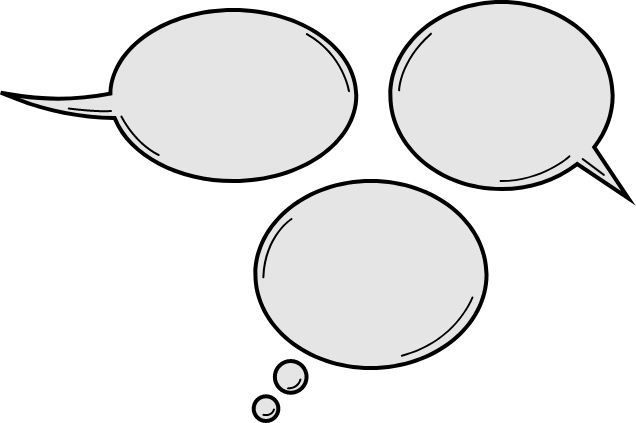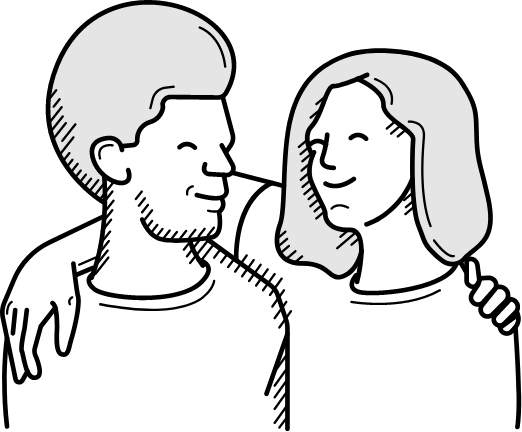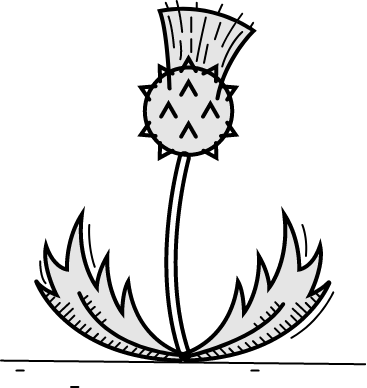Introduction
Bridget joined the social movement as a community champion volunteer in 2016.
She started her journey organising community engagement events like See Me’s Walk a Mile, this brings people together to speak about mental health and 'walk a mile in each other’s shoes'
She then developed her own project, Don’t Judge a Book by its Cover, from her experience of how books have helped her speak about her mental health.
Bridget said: “I gradually learned how I could use books to explain to people how I was feeling and provide a talk and activity on how others can do this to.”
Bridget now works at Borders Recovery College, delivering these activities, teaching people ways of coping with poor mental health, using Don’t Judge a Book. She also sits on the Regional Mental Health Forum.
What interested me about the programme was the fact that See Me acknowledged the stigma and discrimination that’s associated with mental health, because that’s what was holding me back at my work. I didn’t feel able to speak up because I thought, due to stigma and discrimination; they would be horrified and want rid of me anyway, and I didn’t think I would be heard compassionately. The See Me advert seemed to speak to me because it was like they understood that there was a major problem with the perception of people with mental health issues.
Community Champion volunteer training...
For me, it felt like soul-baring because I had never ever talked to anybody about my mental health, apart from medical professionals. For me, it was something that was kept very, very private.
Everyone else seemed to have huge struggles, but, the more I thought about it, the more I realised the impact that my mental health had had on my entire life, and actually that compassion is missing from everybody’s story. It’s all about the impact, and the impact, I knew, had been fairly devastating throughout my life.
Self-stigma was a word I learned through the training and that was quite a revelation. I mean it was a series of revelations for me, the whole selection process and the training.
Everything about See Me has been a highlight really. The people I’ve met from the management staff to the other volunteers, everybody puts you at ease and you feel you can be yourself.
Reflecting...
When I look back now, I was actually very very closed off in what I said, whereas now, having been through the whole process, I’m much more comfortable in talking about my own and other people’s mental health.
It was partly getting to know the See Me message and realising quite how much it meant to me and how important I felt it was. There was also the element of being allowed to talk about books which is my all-time favourite topic of conversation, and I think just the support and validation I got from everyone at See Me. That kind of made me feel like I could do it.
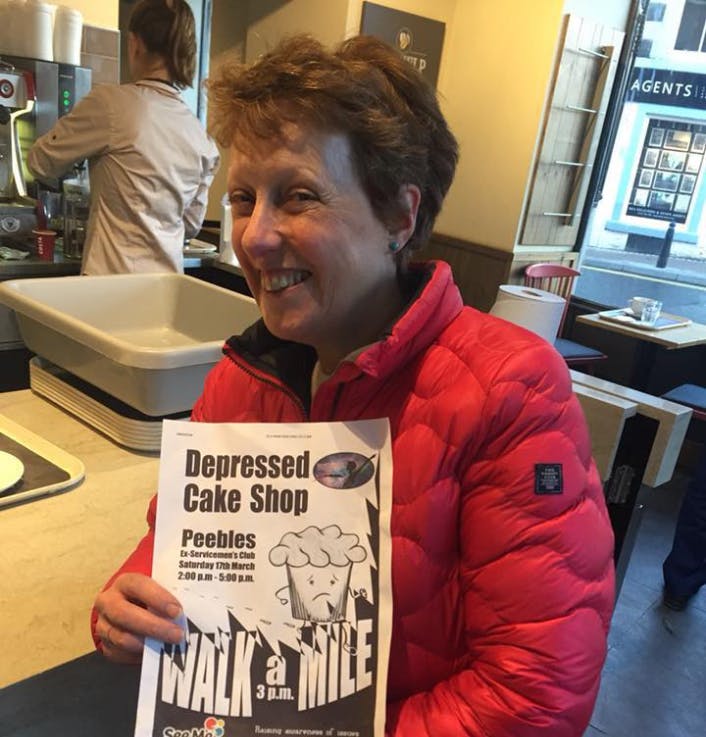
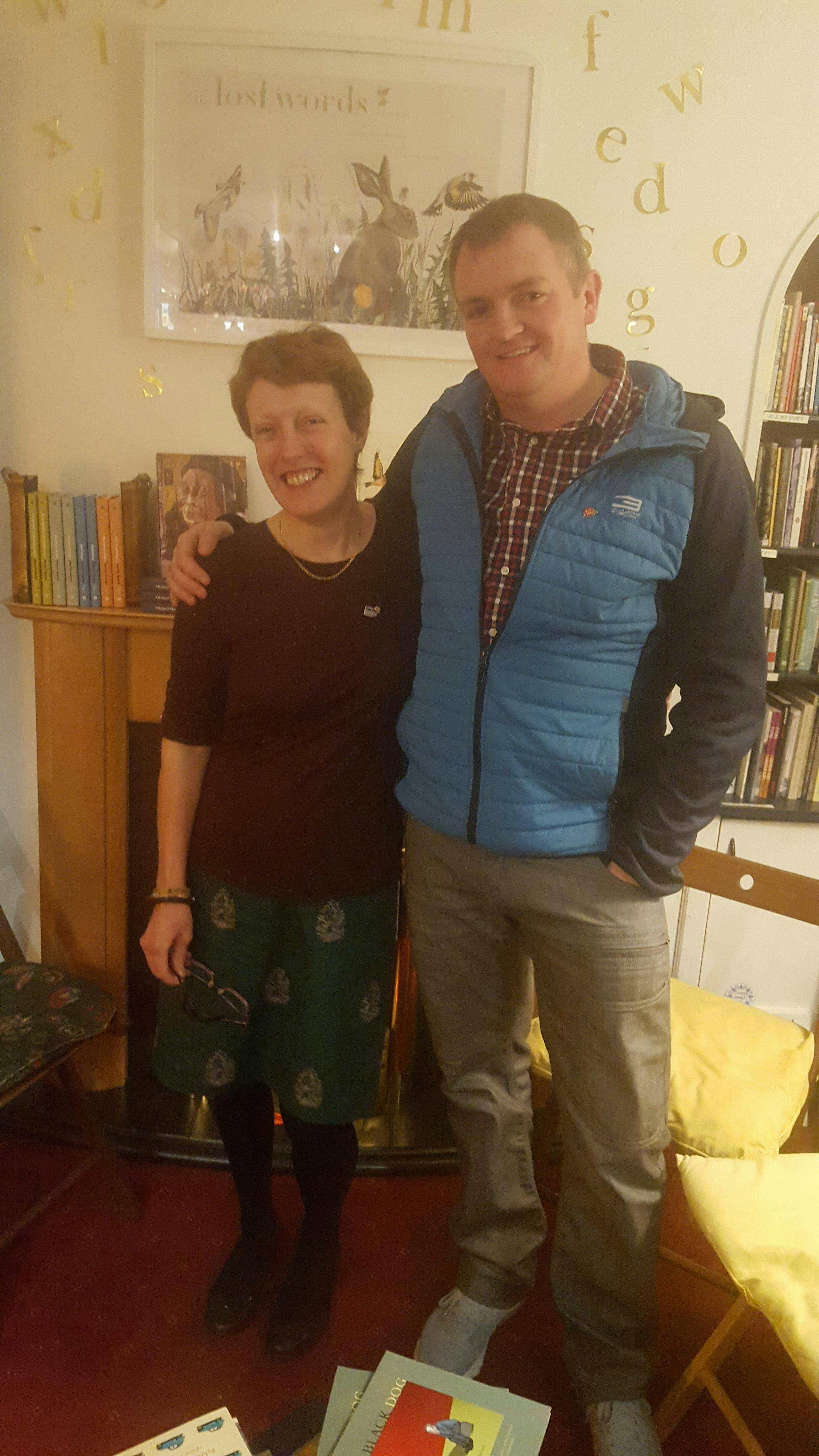
Creating her own project
To start with, after training, I thought I’d do a Walk a Mile to get my profile raised in Peebles. It’s quite an easy format to follow. I was also able to link up with some of the other mental health charities around the area. It was about building up a support network for me. Once I got interest in Walk a Mile, I was able to involve people in Don’t Judge A Book. So, it was kind of a vehicle for me as well. The idea of Don’t Judge a book first developed at the training.
At the training, we were all encouraged to develop our own project and there were a lot of people in my cohort who had these amazing ideas already lined up. And I just always describe it as though I had this mixture of dismay and awe because they were all so incredible and I just felt, oh god, I just don’t know. And then, it was just through taking it back to basics, what do I really love? What do I get comfort from? And it’s always been books.
So, I thought, how can I bring books into it?
There is nothing better than just if you’re feeling lousy, it’s getting in a book and you’re in there with the characters, away from all your own nonsense.
Don’t Judge a Book is an activity which uses books to get people talking about mental health. To start I describe in a 15-minute presentation, how books have helped my mental health. Then we use quotes from books to start a group conversation on mental health.
Instead of saying, I feel like this, you’d say, oh, you see how that character felt? That’s how I am. And I’ve seen a lot of that and going on to adapt Don’t Judge A Book to an actual course at The Recovery College, I’ve had the same feedback from the students.
Overcoming fear
When I first applied with See Me I said, the one thing I will never do is public speaking. And they just went, right, okay. And I thought, yes, that’s fine, that’s that covered off.
The last year I went to the Global Mental Health Meeting in London with See Me’s director and I found myself standing up, talking to people from across the world about my project. I thought how have I reached this place? It’s all down to See Me.
At the training, we were all encouraged to develop our own project and there were a lot of people in my cohort who had these amazing ideas already lined up. And I just always describe it as though I had this mixture of dismay and awe because they were all so incredible and I just felt, oh god, I just don’t know. And then, it was just through taking it back to basics, what do I really love? What do I get comfort from? And it’s always been books. So, I thought, how can I bring books into it?

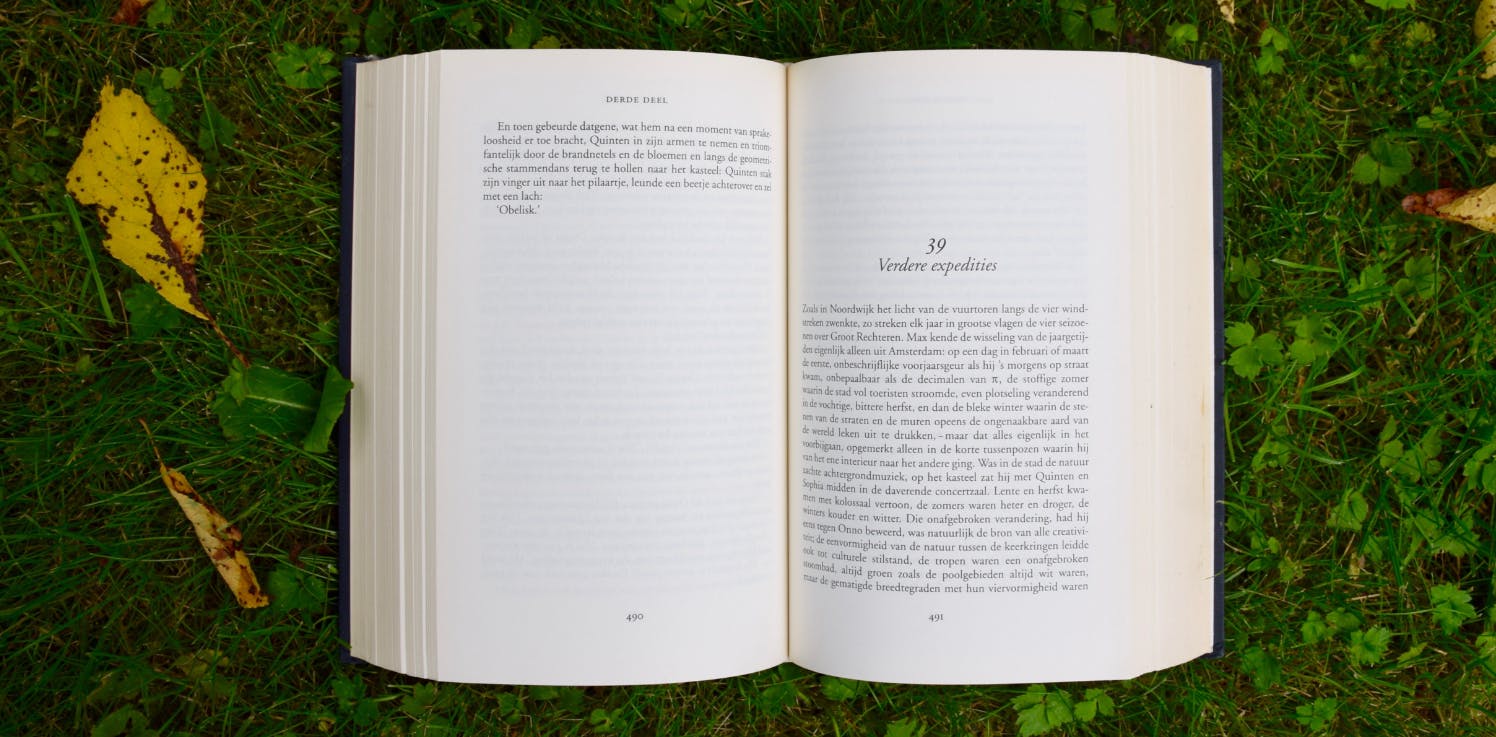
Connecting to others
I have a peer support group which has grown quite a lot and three of the people who joined have now got back into employment which I think is amazing. We have a WhatsApp group, and the support that is out there whenever anybody is feeling in need. They just put a message out and the messages that come back, it’s an absolute joy to see and feel that there is a real sense of community.
I feel much more comfortable in asking people how they are, and you can tell by the way people respond that they feel comfortable. And, you also get your name recognised. We have a local Facebook group for Peebles, and I've noticed that if questions come up about mental health, I get suggested as a reference point which I find quite gratifying. I mean quite scary because I'm not a font of knowledge. All I can ever do is signpost or try and support.
I’ve also had opportunities to connect to a wider network.
Because I’m a See Me champion I was invited onto the Borders Mental Health Forum, and that gets together once a month, and that’s got representatives from so many different groups, we get together once a month, we can link up properly.
That then developed for me. The Forum was very aware of The Recovery College being started up in The Borders, so I had heard of it. Wendy Halliday from See Me contacted me and asked if I be interested in meeting up with Health in Mind to talk about Don’t Judge a Book, with a view to possibly doing something with the College. They were doing consultation events around the Borders and asked me if I would do a five-minute talk about what I do with Don’t Judge A Book, as an example of something that might be rolled out in a college. Having done all that, I was invited to actually be a tutor, which was amazing.
It’s amazing, the people that I've met. They're so interested and it’s really gratifying. It’s quite fun because we incorporate exercises, so as well as me talking about books, we do things like making bookmarks with inspirational quotations and we play games. It all becomes quite interactive and not just me talking.
I’m very aware that it’s See Me that got me into all this, so I always try and make sure the anti-stigma and discrimination message is woven in. But I think most people who have mental health challenges are only too aware of the stigma, so they want to hear an anti-stigma message.
I am very proud that my idea about using books has come to something because I don’t really have a huge amount of faith in myself.
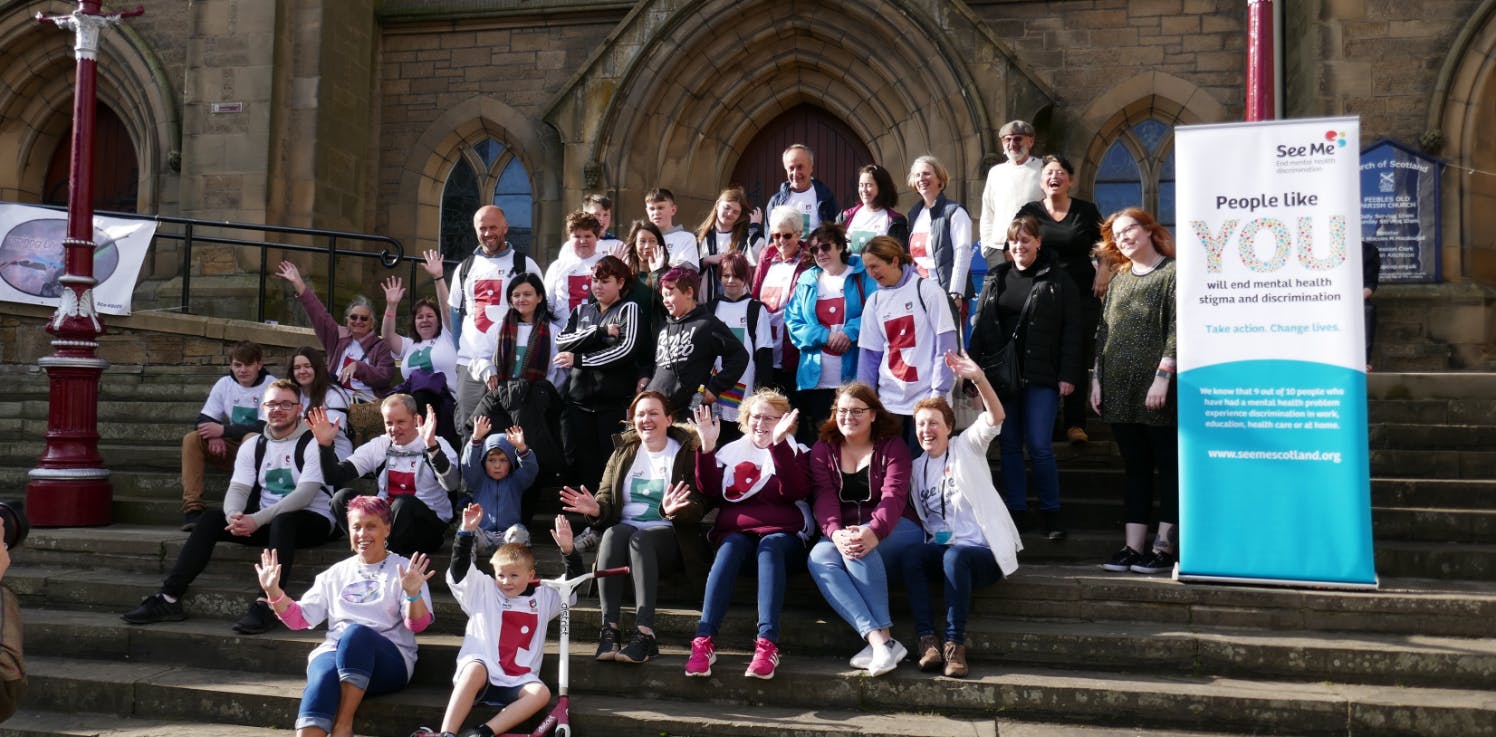
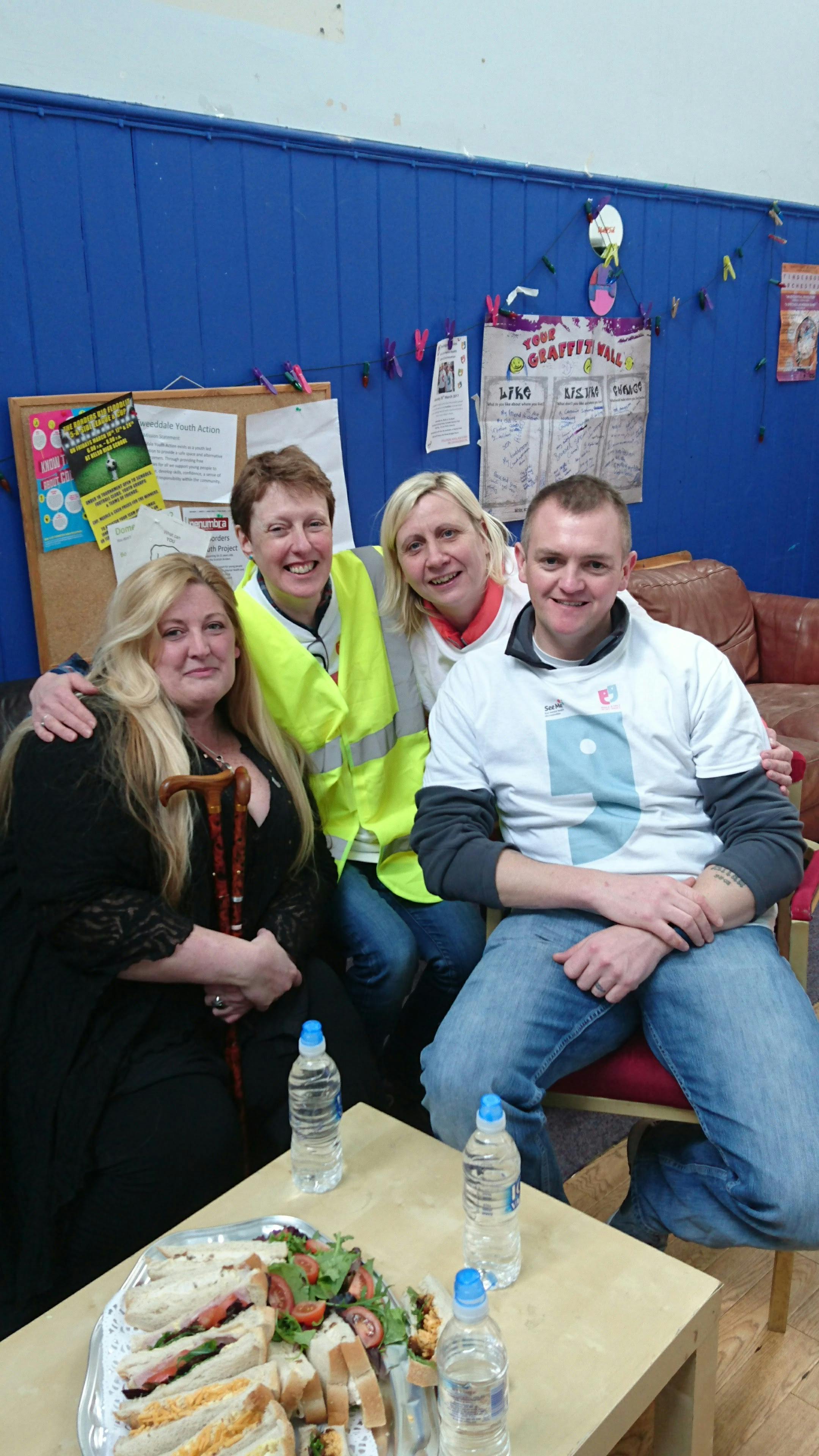
Getting support to those who need it most...
I would say volunteering with See Me has been more helpful than any work with any psychologists, medical professionals and anti-depressants or any medication. Just being with people who allow you to speak openly and be yourself. Whatever I do, whether it’s a Walk a Mile, or a Don’t Judge a Book, I really hope other people will get a sense of that.
I can still never quite get my head round the fact I’m prepared to do public speaking now, and that for me is huge. Even The Recovery College has been fabulous, but I wouldn’t have done that without See Me.
See Me gave me the tools and the confidence. And I see it just in terms of the people I interact with; whether they’re people who have lived with mental health or not. People seem much more comfortable talking about mental health.
The importance of compassion is what we need to focus on in the future. I get quite obsessed about words, and I have this internal debate constantly about whether kindness or compassion is more important, but at the moment, I'm coming down on the side of compassion because I think compassion means you're taking into consideration the feelings of every single person rather than just being kind. Which is important, but I think compassion is probably even more important.
Get Involved with See Me
There are so many ways to get involved and engage with the movement, from becoming a supporter or volunteer to partnering with us to growing the movement in your organisation.
